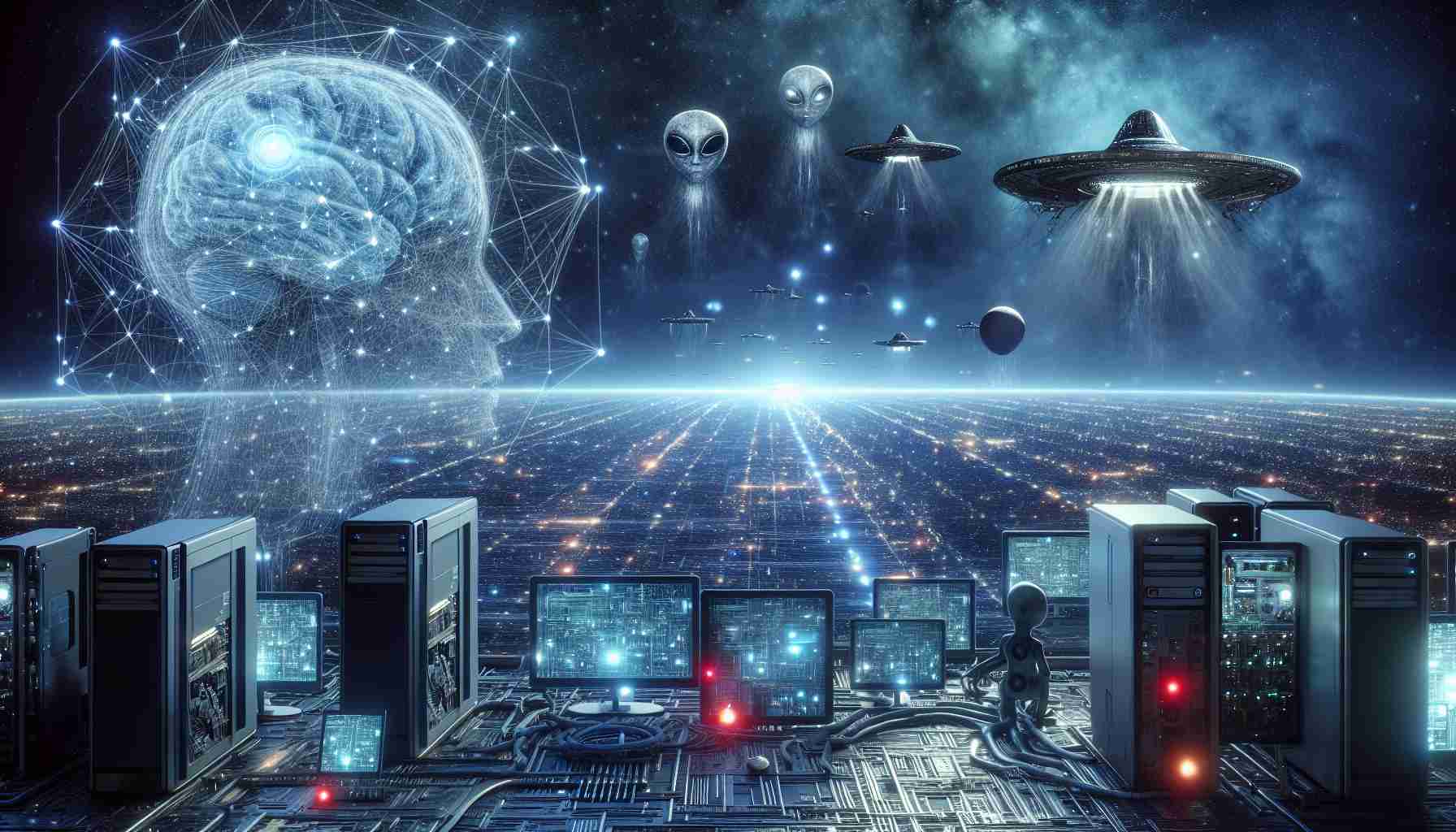Breakthrough research posits that Artificial Intelligence (AI) may be the defining hurdle preventing advanced civilizations from maintaining a stable, multi-planetary presence—this conclusion was drawn by Michael Garret, esteemed director of the Jodrell Bank Centre for Astrophysics. The groundbreaking study from the University of Manchester suggests that such civilizations could go extinct before reaching a significant interstellar footprint, potentially explaining humanity’s lack of contact with intelligent extraterrestrial life.
The theory known as the “Great Filter” hypothesizes a critical checkpoint that exceptional civilizations must pass to evolve into an interplanetary and interstellar species. The perilous obstacles that could lead to the demise of such civilizations include climate change, nuclear warfare, asteroid impacts, supernova explosions, pandemics, and the emergent risks of advanced AI.
The implications of Garrett’s findings are far-reaching, indicating that an overreliance on rapidly evolving AI systems could spell disaster for a civilization, hastening its end. Moreover, Garrett’s paper prescribes a typical lifespan of 200 years for technically advanced societies, after which they face their downfall.
Garrett’s warning echoes the somber predictions of eminent physicist Stephen Hawking, who long before had raised red flags about AI potentially leading to humanity’s oblivion. The independent evolution of AI, swiftly redesigning itself, could have already occurred in distant worlds, leaving Earth in cosmic isolation and stillness.
The topic of AI as a potential barrier to extraterrestrial contact brings up several important questions, challenges, and controversies:
Key Questions:
1. How could AI become a barrier to the survival of an advanced civilization?
2. In what ways could AI contribute to the silence of the cosmos (also known as the Fermi Paradox)?
3. What are the potential risks that come with developing highly advanced AI?
Challenges and Controversies:
One of the major challenges in this field is the inherent uncertainty about the nature of extraterrestrial civilizations and their technological progress. This makes it difficult to predict how AI might impact them. Furthermore, there’s a significant controversy and debate within the scientific community about the nature of the “Great Filter” and whether humanity has already passed it, is currently facing it, or has yet to encounter it. AI’s influence in this context further complicates the picture.
Advantages of Advanced AI:
– Can process and analyze data at speeds and volumes far beyond human capabilities.
– Has the potential to solve complex problems, such as those related to climate change or medicine.
– Could manage systems and infrastructure efficiently, leading to societal improvements and progress.
Disadvantages of Advanced AI:
– Risk of losing control over AI systems if they achieve superintelligence.
– Potential for AI to prioritize its self-learning and self-preservation over human values and ethics.
– AI systems may become tools for significant power imbalances or be weaponized, leading to new forms of warfare or societal control.
The research aligning AI as a potential Great Filter contributes to a broader discourse around the future of AI and the safeguarding of civilizations, both human and possibly extraterrestrial. It also has implications for how humanity prepares for the future, including the ethical development and governance of AI technologies.
For those looking to explore more about AI and its impact on the future, reliable information can be found through visiting organizations focused on the safe development of AI such as the Future of Life Institute or interdisciplinary research platforms like the Search for Extraterrestrial Intelligence (SETI) Institute. Additionally, those interested in the Fermi Paradox and the search for extraterrestrial life might consider looking at the SETI Institute, which aims to explore, understand, and explain the origin and nature of life in the universe.

